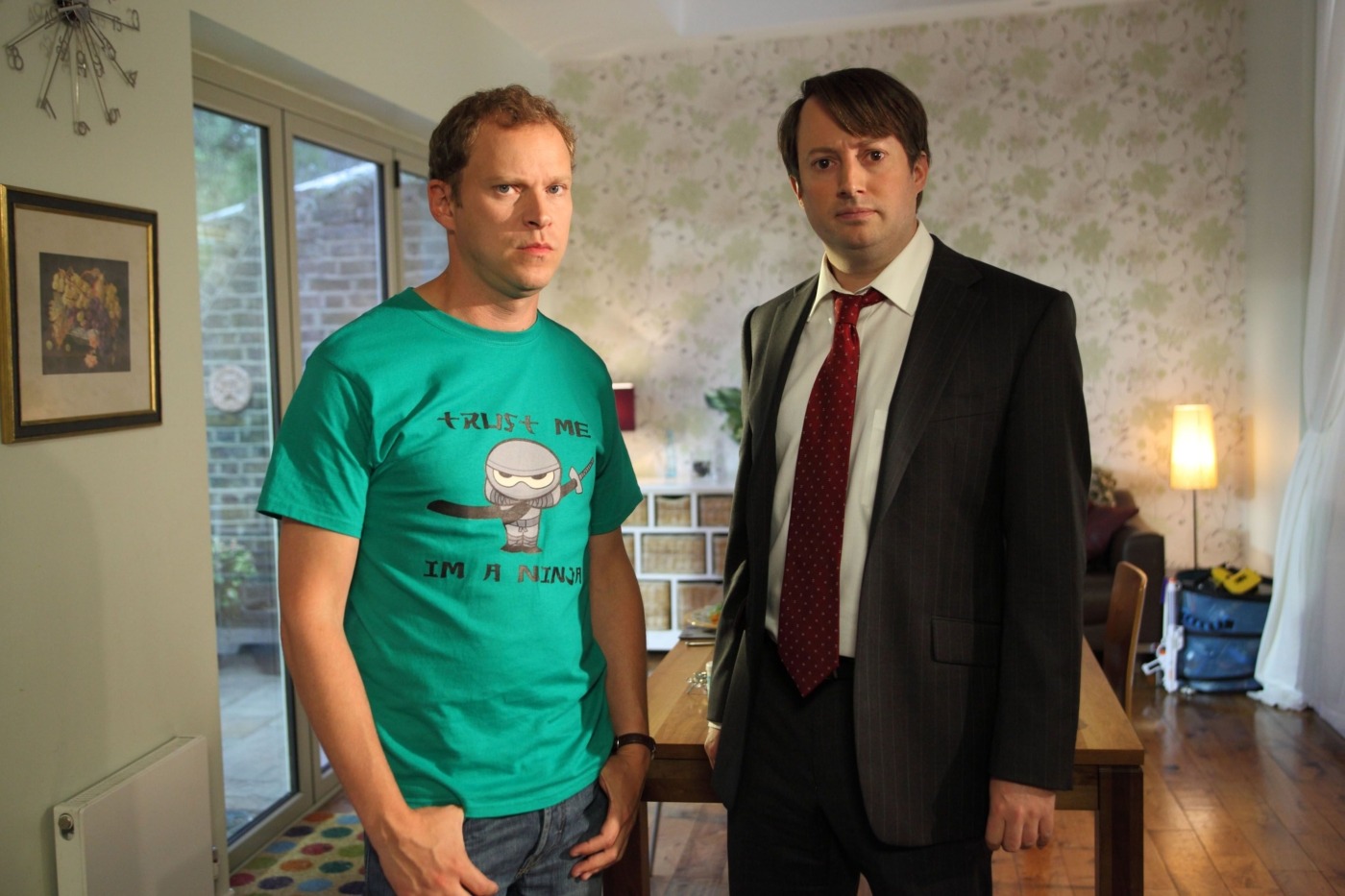Everything’s Cool in Dobby Club: A Peep Show retrospective
“How do I feel? Empty? Check. Scared? Check. Alone? Check. Just another ordinary day.” – Mark Corrigan, 2007.
There’s nothing quite like Channel 4’s Peep Show, a series that’s equal parts comic and tragic (in the traditional sense). As a certified cult-classic, it never achieved high ratings in its time, yet somehow it also managed nine series on air. Remarkably even throughout the 21 years since it first began, the show has attracted a large, dedicated fanbase.
The one question is, why do we love it? The series revolves entirely around a singular gimmick; the characters are, at once, both unlikable and unremarkable. And much of the plot (or lack thereof) is fairly depressing once you break it down. Still, I, alongside countless others, can’t help but keep coming back to it. On the flip side, I’m sure there are many who it’s never likely to appeal to.
Discovering Peep Show becomes a homecoming of sorts
At the end of the day, Peep Show is what popular opinion would have you believe of Marmite: it divides opinion. It’s fringe but if you like it, then it’s probably your favourite show out there. For every Mark and Jez in the world, discovering Peep Show becomes a homecoming of sorts. It’s like the part of you, you never knew existed.
Mark and Jez
When asked about Peep Show’s central theme, Sam Bain, co-writer alongside Jesse Armstrong (of Succession fame), replied: “The stubborn persistence of human suffering”. Though perhaps intended as a joke, when you view the show outside the lens of late-night comedy, this statement rings wholly true, especially in regard to the two primary characters, Mark and Jez.
Like ordinary humans, both have their own wants and needs. These boil down to Mark’s desire to settle down and find ‘the one’, and Jez wanting to become a famous musician, although the latter is arguably more loosely applied.
It contrasts sharply with the typical American sitcoms full of happy families
It’s crucial that neither achieve their respective aims, despite having the theoretical means to do so, or at least Mark does. Further still, for all of season nine’s faults (of which there are plenty), the finale doubles down by failing to provide a satisfying end for the pair: Mark’s marriage ends up a sham, whilst Jez becomes an unqualified life coach. Even during the series, neither truly gets what they want from life.
If this sounds depressing, it’s because it is. It contrasts sharply with the typical American sitcoms full of happy families and success stories. This may put audiences off, but when life often doesn’t go the way you want it to, Peep Show is incredibly refreshing.
The Banality of Evil
Other than acting as reflections of our own suffering, Mark and Jez are also realistic in the root of their aspirations and the many steps they take to realising them. Rather than Mark and Jez being essentially good-natured, Bain and Armstrong posit that people, us included, are generally pretty awful.
Mark is a self-described ‘oddball’, Jez, a ‘loser’ type. Mark is generally mean-spirited; Jez is lazy beyond measure. At times, both can come across as sociopathic and their actions can paint them as positively evil– their worst venture undoubtedly being the killing, barbecuing, and eating of a dog.
Peep Show’s brilliance boils down to great character writing
However, it’s also hard not to find the pair at least somewhat endearing. Within the show’s logic, their actions seem justifiable– an effect enhanced by the POV/internal monologue style. It’s very easy when you watch it to see yourself in either of the pair. This is a testament to Bain and Armstrong’s character writing. Mark’s inherent social awkwardness and Jeremy’s incessant craving of attention reveal deep psychological scars that reflect an extraordinarily mature understanding of human consciousness on the part of the writers (especially for late-night comedy).
It’s perfectly easy for audiences to understand how the pair’s low self-esteem is a result of their offscreen upbringings without any of the contrived flashbacks or exposition that a lesser series would employ. It’s also no surprise that two of the best episodes are the ones that revolve around their respective parents (season five’s ‘Jeremy’s Mummy’, and season seven’s ‘Seasons Beatings’). This doesn’t mean that Mark and Jez are not awful people, but they’re not without cause. Like any great media then, Peep Show’s brilliance boils down to great character writing.
Dobby Club
Even so, Peep Show is still evidently not for everyone, much like the fictional Dobby Club, it’s a fundamentally pessimistic show that offers viewers a grim mirror image of themselves.
21 years later it still feels as fresh and as relevant
Sure, the unique POV style may be off-putting, but in a world of cringey optimism and easy watching, Peep Show was never going to become mainstream because of the hard truths that are part of its core philosophy. In fact, much of the comedy itself revolves around the central contrast between the real world and the world we want to believe in.
However, for those of us willing to recognise ourselves in Mark and Jez, Peep Show, in its brutal honesty, becomes a cathartic antidote to the tired and formulaic media we consume, and 22 years later it still feels as fresh and as relevant.
Peep Show is available to watch on Channel 4.

Comments